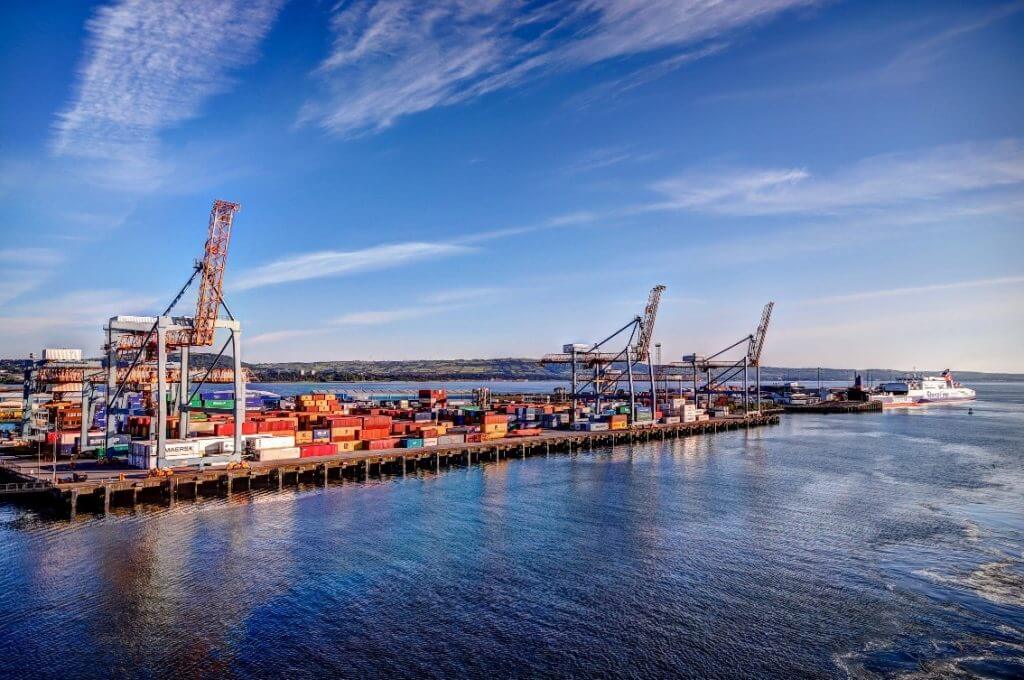The resulting services will provide critical evidential data and analytics to supporting the delivery of decarbonisation strategies to meet increasingly stringent emissions control legislation and tighter energy conservation objectives.
Leveraging access to satellite, and other, data sources, CACHE Net Zero also responds to the linked issue of addressing air pollution in maritime ports and harbours. Air quality improvement is now high on the agendas of many port managing bodies, and needs to be addressed in parallel with their need to deliver improvements in the efficiency of port operations through reductions in energy costs and carbon footprint.
With over 90% of European ports being classed as urban ports, port operations contribute significantly to carbon emissions within a city’s carbon budget
Whilst there is a clear link between reducing GHG emissions and improving air quality, emissions resulting from harbour operations are not currently widely monitored and verified.
Led by Geospatial Insight, the CACHE Net Zero team includes partners Redshift Associates, a space-oriented SME and BABLE GmbH, a leading Smart Cities Facilitator.
The CACHE Net Zero services will be trialled in two collaborating ports, Belfast Harbour in Norther Ireland and Helsingborg in Sweden in demonstration projects that will allow port users to acquire information and digital intelligence on where, when and how often port operations are influencing carbon emissions, air pollution and energy consumption in the port environment.
The CACHE Net Zero demonstrator project builds on the foundation set in the CACHE 22 feasibility project, successfully completed in 2021, and will run for 18 months to test its technical and commercial viability, and to develop a go-to-market plan.
Dave Fox, CEO of Geospatial Insight Ltd, said: “Geospatial Insight and partners have already proven, through successfully delivery of the feasibility project CACHE 22, that there is a great opportunity to assist ports and harbours around the world in their efforts reduce their emissions output.”
“CACHE Net Zero will play a fundamental role in addressing the environmental challenges the port and shipping industry face and demonstrates the value of space-derived data when combined with advanced analytics, providing detailed intelligence of air pollution levels and supporting the implementation of strategies to improve air quality and accelerate the transition to low carbon port operations.”
Professor Alan Wells, Director of Redshift Associates Ltd, said: “Ports emit around 3% of global greenhouse emissions but in the UK and the EU the port industries have set ambitious targets to manage their emissions as they seek to achieve net zero carbon and clean air targets. Managing emission means measuring emissions.”
“CACHE Net Zero is a unique space-based digital solution for measuring emissions from shipping, road traffic and other sources to provide port operators and users with the tools to plan and deliver progress towards carbon net zero and improved port air quality. Deployment of the service in Belfast (NI) later this year will demonstrate the CACHE services for the first time in a port operational environment.”
Eriko Cekrezi, Smart City Consultant at BABLE GmbH, said: “As a leading Smart Cities Facilitator, BABLE is proud to be part of the CACHE Net Zero project and to leverage our expertise in creating sustainable and innovative solutions to support the development of a dedicated EU Port Community as part of the CACHE Net Zero project.
This platform will serve as a collaborative knowledge-sharing hub, where best practices and innovative solutions can be exchanged to support the transformation of the shipping industry towards greater sustainability and energy efficiency.
We believe that this initiative will be crucial in achieving the ambitious carbon reduction targets set out by the European Union and contribute to creating a cleaner, healthier and more resilient environment for all.”

